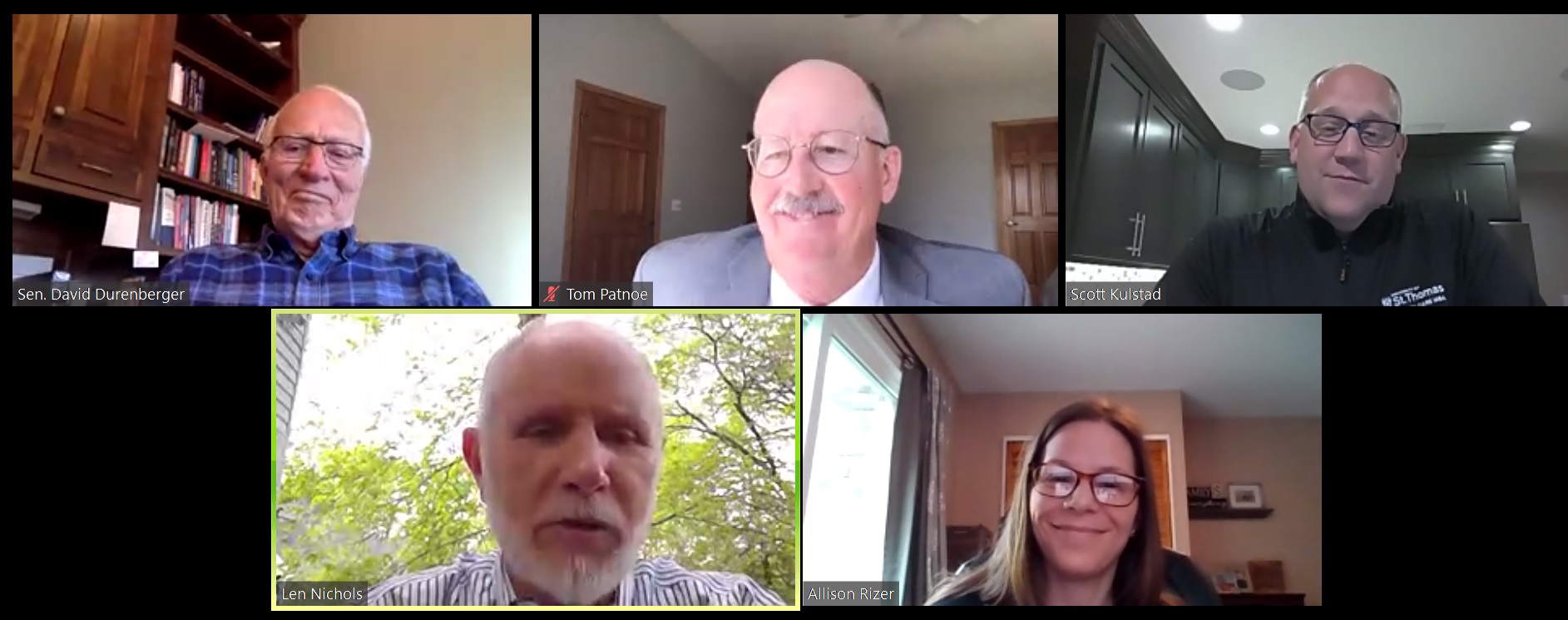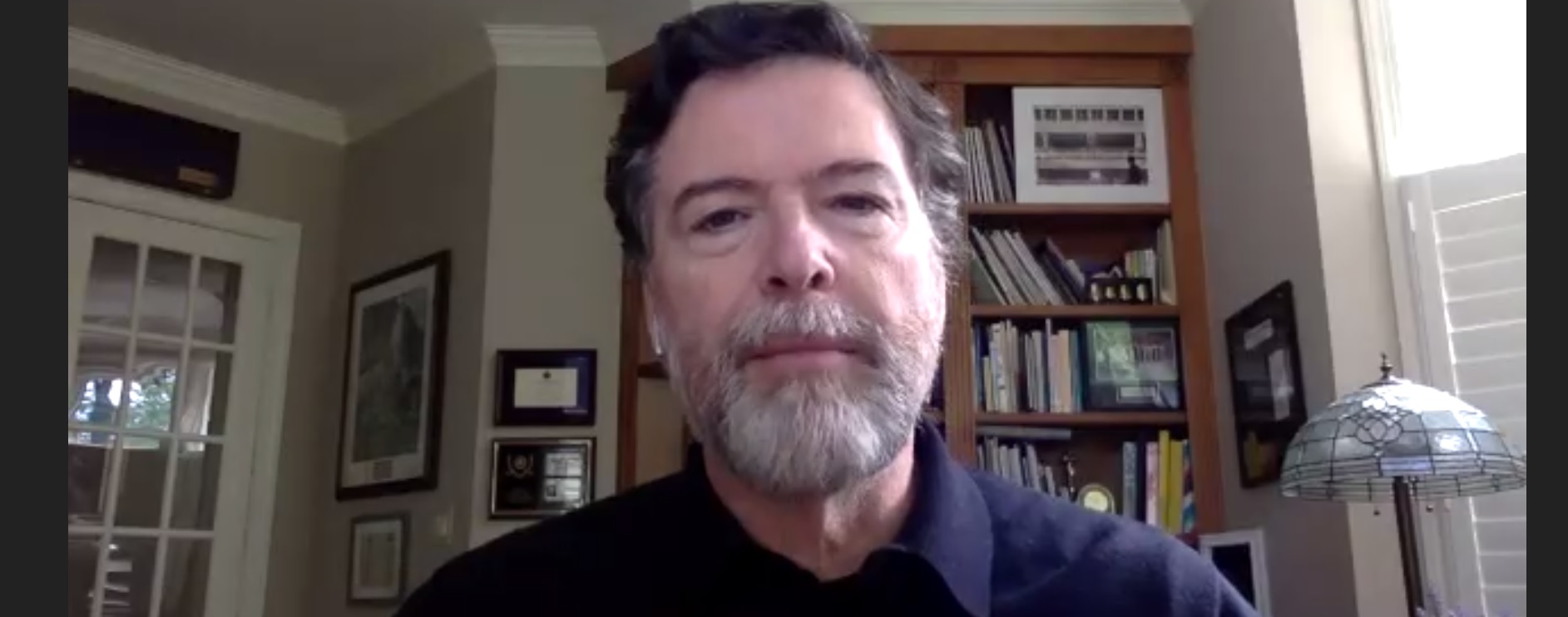In 1995, his first year teaching a health policy class, Durenberger took the class to Washington, D.C., to meet influential leaders. The trip became an annual one to mark the capstone for soon-to-be graduates of the program and continued after Durenberger’s retirement in 2014.
Despite COVID-19, Opus wanted to continue the unique learning experience. This year’s cohort participated in private webinars instead via Zoom in the “Durenberger Health Policy Webinar Series” that included the former senator himself. Students asked many questions of each presenter using Zoom chat.
“Sen. Durenberger mentored and led so many over the years,” said faculty member Scott Kulstad. “We’re grateful that he still continues to participate and share his time with students.”
James Comey on ethical leadership
Former FBI Director James Comey, no stranger to making difficult decisions, presented one of the webinars on ethical leadership and answered questions on topics ranging from working with presidents to how to “flatten the hill” and how to stay motivated.
Kulstad noted that Comey also spoke to St. Thomas Health Care MBA students in 2017 in person, when Comey actually had to leave that presentation to go to Capitol Hill regarding the Russia investigation.
In the webinar, Comey used that situation as an example for health care leaders on how to make difficult decisions. He said, “Try to find a way to slow time down, to get yourself as much help as possible. … When you’re in the middle of a storm, it is really hard to get out of the room, but you have to, because someday you’re going to have to explain the decision.”
Comey said that leaders are both kind and tough, and have both confidence and humility. He said that what makes a leader ethical is the way that they arrive at a decision: Ethical leaders lift their eyes to see above the storm, get help from others and time travel to the future.
Comey also gave practical advice on how to “flatten the hill” – to get people to tell you the truth – such as listening, taking off your jacket and sitting facing people.
Len M. Nichols on changes in health policy

Len M. Nichols of George Mason University (lower-left corner) presented in one of the Opus College of Business Health Care MBA webinars.
Len M. Nichols, PhD, director of the Center for Health Policy Research and Ethics and professor at George Mason University, presented the other webinar, “Health Policy in Election Year 2020.” Nichols, who served in the Office of Management and Budget during the Clinton administration, has talked to Health Care MBA cohorts every year.
“I really appreciated the candor he offered when it came to the future,” Kulstad said. “In describing the additional debt we’ve had to accumulate, he noted that we will all need to make fundamental choices about our policy decisions. This was eye-opening for students.”
Nichols’ talk covered a variety of topics, ranging from his work on social determinants of health to different U.S. economy recovery scenarios to the success of the Affordable Care Act and the impact of COVID-19 on health policy.
“COVID has exposed the weaknesses in our social system much more profoundly than 1,000 lectures by Len Nichols ever could,” he said. “We’ve seen things that can never be unseen and the kinds of disparities in both infection and death rates, the kinds of disparities in hospitals that have been overwhelmed versus hospitals that have not been overwhelmed, hospitals that have plenty of ventilators and those that don’t … I just don’t see those things being sustainable in the long run.”







